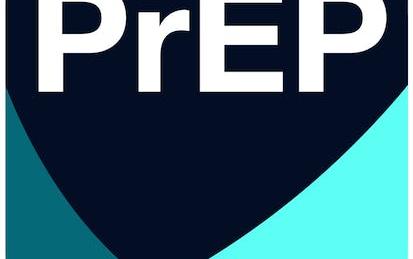

Our Courses

The Social and Technical Context of Health Informatics
Improving health and healthcare institutions requires understanding of data and creation of interventions at the many levels at which health IT interact and affect the institution. These levels range from the external “world” in which the institution operates down to the specific technologies. Data scientists find that, when they aim at implementing their models in practice, it is the “socio” components that are both novel to them and mission critical to success.
-
Course by

-
 Self Paced
Self Paced
-
 9 hours
9 hours
-
 English
English

Biostatistics in Public Health
This specialization is intended for public health and healthcare professionals, researchers, data analysts, social workers, and others who need a comprehensive concepts-centric biostatistics primer. Those who complete the specialization will be able to read and respond to the scientific literature, including the Methods and Results sections, in public health, medicine, biological science, and related fields. Successful learners will also be prepared to participate as part of a research team.
-
Course by

-
 Self Paced
Self Paced
-
 English
English

少年福利與權利 (Welfare and Rights of Youth)
課程介紹 世上有許多事可以等待 但孩子是不能等的 他的骨在長,他的血在生 他的意識在形成 我們對他的一切不能答以「明天」 他的名字是「今天」 -智利詩人Gabriela Mistral 少年是我們國家未來的「希望」,如何提供他們一個健全發展的環境是各國致力的目標。本課程旨在探討當今少年的基本福利與權利,以及其所面臨的各種問題與挑戰,並討論影響少年問題產生之相關因素,以及社會工作領域在處理少年問題時所採用的對策。此外,也將探討相關少年福利政策的意義與對社工實務的影響,並將強調以社會工作的觀點來深入討論上述各項與少年有關的議題或問題、影響問題形成的因素以及預防和輔導少年問題相關對策。 (課程涵蓋國內外相關論述) 因響應聯合國人權倡議課程計畫,特別將此門課的影片字幕更新為有英文字幕可以供學習者選擇,歡迎外國朋友一同來學習,不過英文學習部分,目前現階段計畫僅影片有英文字幕,其他學習資源、素材的語言更新,有待後續完整化。
-
Course by

-
 Self Paced
Self Paced
-
 Chinese
Chinese

The Critical Role of IT Support Staff in Healthcare
This is a very exciting time to be exploring a career in Health IT Support! In this introductory course, you’ll learn about various roles in IT support that are common in healthcare. IT support staff play critical roles in many different healthcare venues. In addition to helping clinics, hospitals, and emergency rooms, you may end up providing support in a skilled nursing facility, ambulatory surgical center, virtual care setting, or even a patient’s home!
-
Course by

-
 Self Paced
Self Paced
-
 2 hours
2 hours
-
 English
English

Helping Families Avoid Negative Court Involvement Teach-Out
This course will teach learners how to understand when issues can become legal issues, encourage learners to recognize legal problems early, identify possible “legal soft spots” in their own situations, and act when issues are identified to avoid them escalating. This course will also teach and encourage learners to think preventatively and provide some tools to use with an eye toward preventing future legal issues.
-
Course by

-
 Self Paced
Self Paced
-
 4 hours
4 hours
-
 English
English

Foundational Skills for Communicating About Health
Effective communication is a core skill that nearly every health professional will need and use during their careers. Yet, few health professionals receive even basic training in how to design communications to be clear and successful.
-
Course by

-
 Self Paced
Self Paced
-
 15 hours
15 hours
-
 English
English

Service Transformed: Lessons in U.S. Veteran Centered Care
Improving health care for veterans has become a matter of national attention and has gained increasing attention from the medical community. With the current surge of veterans reintegrating into civilian society it is critical to improve the training of the next cadre of providers who will provide care for our veterans. It is widely known that veterans receive care in all aspects of the health system, thus providers in veteran focused care facilities, military health serves and civilian locals must be aware of the unique needs of veterans.
-
Course by

-
 Self Paced
Self Paced
-
 26 hours
26 hours
-
 English
English

The Arts and Science of Relationships: Understanding Human Needs
This course provides an introduction to: 1. Basic concepts of The Strategies and Skills Learning and Development System (SSLD), their relevance for every day relationships and provide advanced concepts for participants who work in fields of social work and health care . 2. Basic practice principles and methods of SSLD, illustrated by relationship management case studies. 3. The SSLD framework for relationship management assessment; N3C (needs, circumstances, characteristics, capacity) and problem translation. 4.
-
Course by

-
 Self Paced
Self Paced
-
 32 hours
32 hours
-
 English
English

Reaching Vulnerable Groups through Pandemic Policy
This course aims to provide an in-depth reflection on social work in different contexts, hereby focusing on their needs, the way the contexts have been influenced, and different challenges that have occurred during the last two years.
-
Course by

-
 Self Paced
Self Paced
-
 6 hours
6 hours
-
 English
English

Impacting the Opioid Crisis: Prevention, Education, and Practice for Non-Prescribing Providers
For CME Learners: View information about expected results, presenters, their disclosures, and CME credit here: https://umich.cloud-cme.com/course/courseoverview?P=0&EID=3551 This course will empower non-prescribing providers to directly impact the ongoing opioid crisis in the United States through increased knowledge and tools that will transform practice and policies.
-
Course by

-
 18 hours
18 hours
-
 English
English

Social Work Practice: Advocating Social Justice and Change
In this course, you will learn how social workers in the United States engage in creating change and supporting the resilience of individuals, families and communities in this new era. Learners will have an opportunity to explore the social work profession, the different roles of social workers in a range of settings, the cross cutting themes that guide social work practice, the history of social work, and current challenges. Using a social justice lens, learners will reflect on current challenges facing the lives of individuals, families and communities and examine ways to advocate for need
-
Course by

-
 Self Paced
Self Paced
-
 12 hours
12 hours
-
 English
English

Science of Firearm Injury Prevention Among Children & Teens
Firearm injuries are a leading cause of death among children and teens. However, there are many ways that these injuries and deaths can be prevented using evidence-based practices and policies. Presented by the University of Michigan Institute for Firearm Injury Prevention and the Firearm Safety among Children and Teens (FACTS) Consortium, this course lays a broad foundation for understanding the science of pediatric firearm injury prevention and the latest research and evidence-based solution.
-
Course by

-
 Self Paced
Self Paced
-
 40 hours
40 hours
-
 English
English

Social Policy for Social Services & Health Practitioners
In the U.S., social policy accounts for two-thirds of government spending. Knowing how policies are constructed, what values underlie them, and how they succeed or fail makes everyone more effective at work or in their civic role. This specialization includes an HONORS track in which learners will complete a professional social policy analysis. Teachers, health care workers, police, and social workers interact with policy daily, but all of us should care about the impact and effectiveness of these programs.
-
Course by

-
 Self Paced
Self Paced
-
 English
English

Intimate Partner Violence (IPV): Interprofessional Strategies for Prevention and Response
In this course, learners will be introduced to key concepts, definitions, and theories of IPV from public health, social justice, and legal perspectives. Learners will also receive applied learning opportunities to implement best practices for identifying, screening, and responding to IPV in clinical practice settings, including interprofessional strategies that engage professionals from social work, law, nursing, dentistry, and medicine.
-
Course by

-
 Self Paced
Self Paced
-
 English
English

PrEParing: PrEP for Providers and Patients
Pre-Exposure Prophylaxis (PrEP) using the antiretroviral medication emtricitibine/tenofovir approved in countries around the world is a highly effective means of reducing transmission of HIV through sexual encounters and needle sharing. This Johns Hopkins University course PrEPares you with essential information, concepts and practical advice regarding PrEP from leaders in the field.
-
Course by

-
 Self Paced
Self Paced
-
 16 hours
16 hours
-
 English
English

Confronting Gender Based Violence: Global Lessons for Healthcare Workers
This course introduces participants from the healthcare sector to gender based violence (GBV), including global epidemiology of GBV; health outcomes; seminal research; and clinical best practices for GBV prevention, support, and management. A core curriculum is supplemented by lectures that contextualize the content with specific examples and programs from around the world. The core curriculum introduces learners to a global perspective on gender based violence (GBV), and includes a review with Dr. Claudia Garcia-Moreno of the new WHO guidelines on responding to violence.
-
Course by

-
 Self Paced
Self Paced
-
 22 hours
22 hours
-
 English
English

Good with Words: Speaking and Presenting
Suppose you were good with words. Suppose when you decided to speak, the message you delivered—and the way you delivered it—successfully connected with your intended audience. What would that mean for your career prospects? What would that mean for your comfort level in social situations? And perhaps most importantly, what would that mean for your satisfaction with the personal relationships you value the most? This specialization is designed to help you find out.
-
Course by

-
 Self Paced
Self Paced
-
 English
English

Leadership for Public Health Crises
Leadership for Public Health Crises will enable current and prospective managers, directors, unit heads, and elected officials to effectively lead their organizational response to profound health-related emergencies and to build leadership capacity across multiple sectors, agencies, organizations, and divisions. This series of courses prepares graduate students (in, e.g., public administration, public health, social work, business, homeland security, education, and related fields) and practitioners in a range of roles in this broader arena who seek to attain or advance in leadership roles.
-
Course by

-
 Self Paced
Self Paced
-
 English
English

Knowledge and Skills for Dementia Care: the SSLD Approach
This course is designed and produced by Professor Ka Tat Tsang of the Factor-Inwentash Faculty of Social Work in collaboration with the Institute for Life Course and Aging at the University of Toronto. This course aims to inform learners about dementia and dementia care from an SSLD perspective, including, community care, in-home support, and long-term care. This course will cover the continuum of senior services and support across different settings, including, private caregiving, community services, and institutionalized residential care.
-
Course by

-
 Self Paced
Self Paced
-
 30 hours
30 hours
-
 English
English

Community Awareness: Police Brutality in the U.S.
The tragic deaths of George Floyd, Breonna Taylor, and Ahmaud Arbery have sparked a wave of renewed protests against police brutality across the United States. These nationwide uprisings have transformed into an intense interest from the public around understanding systemic racism and abuse of power. Millions of Americans and people around the world are watching incidents of police violence and excessive force captured on video, but are looking to learn about the inequalities at the root of these incidents.
-
Course by

-
 Self Paced
Self Paced
-
 17 hours
17 hours
-
 English
English

Valuing Diverse Perspectives in Social Work
This course explores and critically examines diverse ways of knowing about experiences related to the concepts of trauma and wellness, both individually and collectively, and builds upon wellness strategies that focus on context, culture, and lived experience across the lifespan.
-
Course by

-
 Self Paced
Self Paced
-
 32
32
-
 English
English

Embracing the Whole Person in Social Work
This course will explore trauma and wellness from a holistic, systems approach, emphasizing connections, relationships, strengths-based, resilience, post-traumatic growth, and healing and wellness. Complex problems require complex solutions; there is no one size fits all approach.
-
Course by

-
 Self Paced
Self Paced
-
 45
45
-
 English
English

Areas of Social Work Practice
This course will orient the learner to the context for social work, including the diversity of human needs, human services, social policy, and legislation. Learners will also gain information about social services, social programs, and career opportunities within rural and urban Alaska, as well as nationally.
-
Course by

-
 Self Paced
Self Paced
-
 27
27
-
 English
English

Introduction to Social Work
This course is an introduction to the profession of social work and the human services delivery system. It examines the historical development of social work focusing on the knowledge, values, and skills that characterize the social worker. This course will orient the learner to the context for social work and focus on the foundational frameworks of the profession.
-
Course by

-
 Self Paced
Self Paced
-
 27
27
-
 English
English



